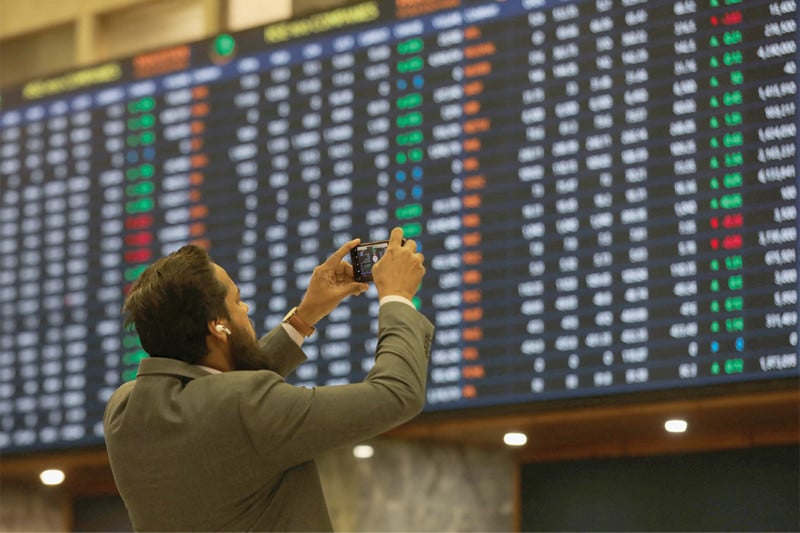KARACHI: Taking cues from political stability and economic turnaround, the Pakistan Stock Exchange (PSX) is projected to grow by 32% over the next 13-months, reaching 81,000 points in December 2024.
In its annual report titled ‘Pakistan Strategy 2024 – Targeting 81,000; Resilience and Redefined,’ Arif Habib Limited stated that robust earnings growth reported by companies listed on the PSX, enticing stock valuations, substantial domestic liquidity for stock purchases, and comparatively steady economic growth would fuel the rally in 2024.
“Economic headwinds are expected to subside. We maintain an optimistic outlook for FY24, supported by conducive domestic macro factors. GDP growth is expected to be 3.3% during FY24 (compared to a contraction of 0.17% in FY23),” the research house said in the comprehensive report on Monday.
It mentioned that the current account deficit (CAD) is expected to be manageable at $1.1% of GDP in FY24. Inflation is estimated to decelerate to 24% in FY24 and 12.8% in FY25. The State Bank of Pakistan (SBP) is expected to cut its key policy rate by a massive 7 percentage points in 2024, reaching 15% by December 2024. Administrative steps and improved external flows would stabilise the Pakistani rupee.
The potential trajectory of economic indicators would support the stock market’s upward momentum.
Recalling that the PSX benchmark KSE 100-Index staged the fastest rally in the past 20 years, increasing 55% in the past five months to a new all-time high above 62,000 points at 62,493 points on Monday, AHL said, “Even with a notable 45% return during the calendar year 2023 to date, the KSE100 index remains significantly undervalued across various valuation perspectives. On a P/E (price-to-earnings ratio) basis, the KSE100 index is trading at 4.2 multiples, offering a 29% discount to the last 5-years average of 5.9 multiples.”
The KSE-100 Index is trading at a market capitalisation (value of all shares) to GDP of 8.8%, a discount of 26% compared to the last 5-year average.
One of the major catalysts for the recent bull run in the equity market was the announcement of the date for general elections in the country – February 8, 2024. The noise and instability of the last few years were detrimental to investment sentiment in the country. “We think that with the arrival of a freshly elected government, a much-needed era of political stability is set to start, and this will be positive for the stock market.”
“We also view that persisting fears of a delay in elections are unfounded. Pakistan is on the verge of completing its SBA (IMF ongoing $3 billion loan programme for Pakistan) and immediately will be required to enter into an EFF (another loan programme) with the IMF.”
Media has reported several times that IMF officials have sought clarity from all stakeholders and received assurances that elections will take place on time. “Timely elections and a freshly elected government to take charge are essential to continue the economic reforms that have been initiated under the caretaker government.”
The research house maintains an optimistic outlook for FY24, supported by conducive domestic macro factors.
“To begin with, we expect a strong rebound in FY24 GDP growth to 3.33% (a stark contrast to the 0.17% contraction in FY23), further accelerating to 4.58% in FY25.”
Secondly, it expects inflationary pressure to ease substantially over the next 6-12 months, resulting in CPI inflation decelerating to 24% by June’24.
Lastly, it anticipates an accommodative monetary policy stance, starting the first quarter of CY24, which shall serve as a catalyst for accelerated economic activity in the latter part of the current fiscal year and more importantly in the second half of 2024, it said.
Nevertheless, it is important to acknowledge key downside risks to AHL estimates. “These include the vulnerability of the PKR (rupee-dollar exchange rate) to global and local macro and geopolitical developments, the looming threat of a global macro slowdown, a resurgence of international commodity prices, political instability, and extremely aggressive structural reforms that could hurt growth in the short to medium term.”



No comment